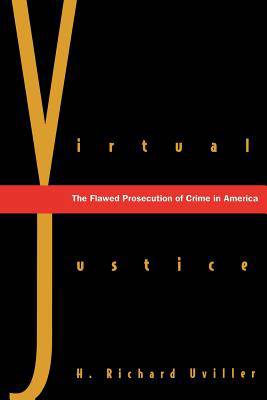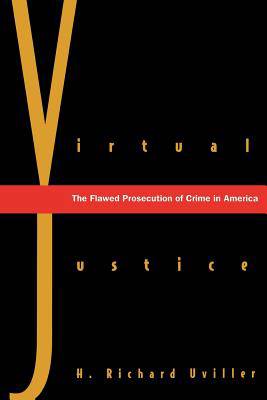
- Afhalen na 1 uur in een winkel met voorraad
- Gratis thuislevering in België vanaf € 30
- Ruim aanbod met 7 miljoen producten
- Afhalen na 1 uur in een winkel met voorraad
- Gratis thuislevering in België vanaf € 30
- Ruim aanbod met 7 miljoen producten
Zoeken
€ 74,95
+ 149 punten
Uitvoering
Omschrijving
Sensational trials obsessively televised and reported by news media have led many Americans to question the effectiveness of their criminal justice system. Do police have the laws they need-or the competence-to do their job? Can juries recognize the truth in the tangle of evidence presented to them? What do lawyers actually contribute to the quest for justice in the criminal court? In this fascinating book a distinguished legal authority examines the flaws, contradictions, and weaknesses in our American justice system. The gripping stories he tells about the investigation and trial of criminal cases reveal what's really going on and demonstrate how the system often fails to deliver true justice. H. Richard Uviller deftly covers major aspects of the criminal justice process, from the gathering of evidence, capture and custody, and eyewitness identification to plea bargaining, selecting the jury, and the role of the judge. He illuminates each aspect of the process by creating and then analyzing a scenario drawn from the daily business of the courtrooms of the nation, a scenario in which police or judges may find themselves frustrated or immobilized, often by the law itself. Uviller explains the legal quandaries that often bedevil the process and shows how decisions by the Supreme Court have relieved or aggravated perplexity. He concludes that the prohibitions limiting investigation, the pervasive combat mentality between defense and prosecution lawyers, and, in particular, the power vested in a random collection of ordinary people gathered together as a jury all contribute to a criminal justice system that produces virtual-rather than actual-justice.
Specificaties
Betrokkenen
- Auteur(s):
- Uitgeverij:
Inhoud
- Aantal bladzijden:
- 336
- Taal:
- Engels
Eigenschappen
- Productcode (EAN):
- 9780300183030
- Verschijningsdatum:
- 1/11/2011
- Uitvoering:
- Paperback
- Formaat:
- Trade paperback (VS)
- Afmetingen:
- 152 mm x 229 mm
- Gewicht:
- 494 g

Alleen bij Standaard Boekhandel
+ 149 punten op je klantenkaart van Standaard Boekhandel
Beoordelingen
We publiceren alleen reviews die voldoen aan de voorwaarden voor reviews. Bekijk onze voorwaarden voor reviews.







